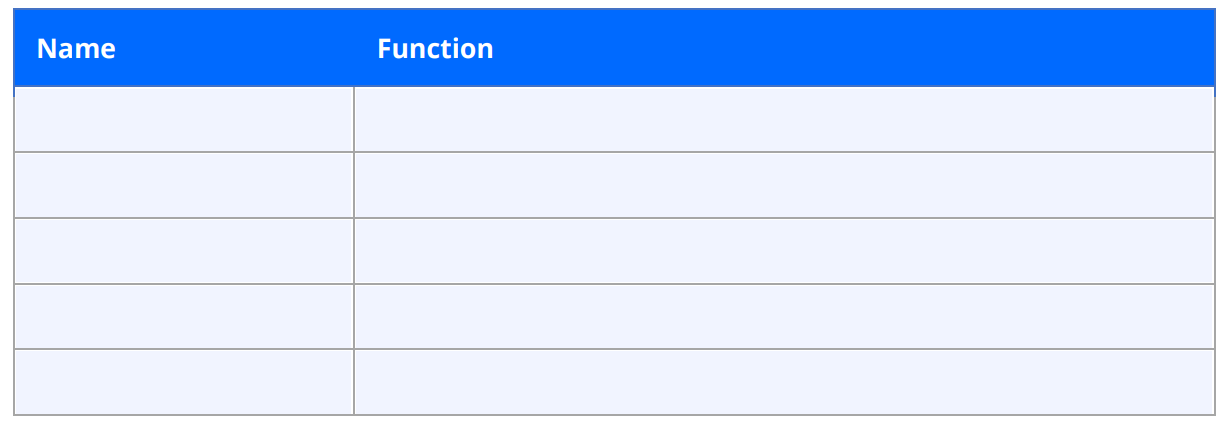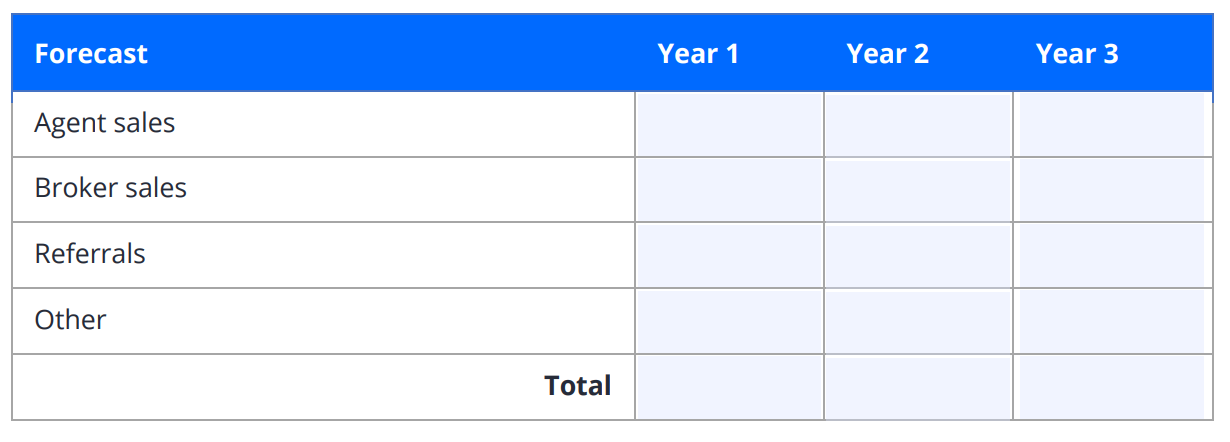How to Create a Real Estate Agent Business Plan

meredithmc
December 10, 2024
7 Minute Read
In this article:
- Why agents need a real estate business plan
- How to write a real estate business plan
- Free real estate business plan template
Every agent should have a plan in place to succeed. A real estate business plan keeps you accountable and on track. An optimal business plan for real estate agents includes firm goals, but it’s also fluid — you’ll want to update your real estate business plan as you grow and the market evolves.
Why agents need a real estate business plan
A real estate business plan allows you to stay current with market trends and ahead of the competition. It also helps you track results over time, test lead generation strategies and develop new marketing approaches.
Here’s what a good real estate agent business plan will show you:
- Where you are today
- Where you want to be
- How you’ll get there
- How to measure your performance
- When and where to make a course correction
Tips to write a real estate business plan
The benefits are clear, and you’re convinced — but where do you start? Here are a few recommended steps for creating a business plan for real estate agents, sourced from our Agent Advisory Board. While not required, use these as steps a starting point when discussing a business plan with your clients.
Write an executive summary
Real estate business planning should try to start with a summary of who you are, what services you offer, where you operate and who you serve.
Example: John Smith is a real estate agent who serves clients — particularly first-time home buyers — in Western Washington. He offers home-buying, home-selling, mortgage and title services.
Define your mission statement
Your mission statement is the foundation that supports your entire real estate business plan. It should clearly state your guiding principles and goals.
Example: With a passion for helping people find their way home, John Smith guides first-time home buyers through the entire process — even offering mortgage and title assistance.
Create a team management summary
If you’re working with a team, include all members who contribute to your success and how they help. Create a table that shows their roles, responsibilities and time frames for specific tasks.

Know your target client
Determine who your target client is and figure out their story. The more personal you can get, the better you’ll serve your clients.
Who, specifically, is your target client? This could be a first-time home buyer, a home seller, a renter — or a more specific subset like retirees or investors.
What is your target client’s story? Ask your clients specific questions and create a strategy based on their answers. Where do they want to live? What is their annual household income? What do they want from their home?

Outline SMART business goals
It's always a good idea for your goals to be specific, measurable, attainable, realistic and timely — in other words, SMART. Once your real estate business goals are SMART, break down each goal into objectives. These should be the specific tasks and activities required to accomplish the goal.
Example: Increase qualified-lead generation by 20% each month using online resources such as social media, paid advertising and your company website.
Map out your keys to success
Every real estate agent business plan template should try to include a table that lists the top three ways to achieve business success — and more importantly, the actions required to fulfill them.

Breakeven analysis
A critical part of real estate business planning is determining your breakeven point. What average commission rate do you need to achieve per unit to break even each month? How many homes must you sell at your average commission rate to break even by your target goal?
Understand your market
It’s crucial to stay on top of your target client’s market. Our research suggests a successful agent will know how the market has behaved in the past few years, as well as where it’s headed (and why).
Example: In the past six years, the housing market for first-time buyers in the Pacific Northwest has grown an average of 3% annually. This percentage is expected to grow because millennials — the biggest group currently purchasing their first homes — are attracted to the region’s stable and growing tech industry.
Segment your market
Let’s look at a target client in a sample real estate business plan. This is illustrative and not prescriptive:
Suppose the target client is a first-time home buyer. How can we segment that market further to include even more detailed and relevant information? Here are two potential market segments for our first-time home buyer:
- First-time home buyers, single family
- First-time home buyers, multigenerational
Plan for market growth
Map out how much growth you anticipate in your market, and use it to forecast the number of potential clients over the next few years.
Track market trends in your real estate business plan with a table listing possible outcomes on the right and trends on the left.

Track market trends
What market trends do you foresee impacting your business and market segments? Here’s a real estate business plan sample that projects a possible outcome for a rise in multigenerational living:

Develop a SWOT analysis
Every business plan should strive to implement a SWOT analysis: strengths, weaknesses, opportunities and threats. Some sample real estate business plan SWOT questions include:
- What sets me apart from my competition?
- What skills need improving?
- Are there any opportunities I’m overlooking?

Recognize your competition
Who’s your primary competition in your target market, and what makes them your primary competition? How will you outperform them?

Create a marketing strategy
Every real estate business plan template needs a marketing strategy table. Highlight your resources and key features, like this sample:

List ways to generate leads
It's a good idea to keep a list of effective methods to generate leads, and always update the list when new strategies come up. The lead generation list in your real estate development business plan is as simple as this:

Project yearly sales forecast
You can use market growth, trends, and other real estate marketing strategies to predict your annual sales for the next three years. Here’s an example table from our real estate business plan PDF:
Outline your personnel expenses
Knowing what you’ll spend in a year will help you determine your breakeven point and set reasonable expectations for growth. A simple expense table, like this one from our free real estate business plan, allows you to project your personnel expenses through the next three years:
Measure client experience
Keep track of all the services you offer — and measure how quickly you deliver them. This is crucial in any real estate business planning document, as it helps you build a strong client relationship and track the results over time. Here’s an example for measuring response time:
Use a client relationship management (CRM) tool
There are many CRM tools out there, so it’s easy to find one that fits your needs. Do you want to track analytics? Use it for email marketing? Keep track of property and listing details? Automate your marketing efforts?
As part of Zillow's Premier Agent program, you can use a CRM to manage all your leads and connections, along with their progress through the real estate journey. You can prioritize leads who are actively looking, submitting offers and under contract. Jot down other tools you’re using, especially transaction management tools and their specific functions.
Calculate your business plan performance
The final step in your real estate business plan template is measuring the plan’s performance. Track performance-related questions and how you’ll measure them. Here’s a sample question and measurement example that many agents use for real estate business planning:
Free real estate business plan template
Our customizable template helps you create a real estate business plan that outlines what success looks like — for you and your clients — so you can have your best year yet. This sample real estate business plan gives clear examples and allows for complete customization to your personal goals and your real estate market. Jot down your real estate business goals, clarify the state of your finances, profile your target customers and track other data that’s vital to successful real estate business planning.
Best of all — you can get started today! Just download our free real estate business plan template and add your own goals, projections, expenses and data. Don’t forget to update it regularly to accurately track your progress, evolve with the market and stay current with your target client’s needs.
Zillow works for agents
We're here to support you and your clients on their journey home. Discover how we can help grow your business today.
Learn more
